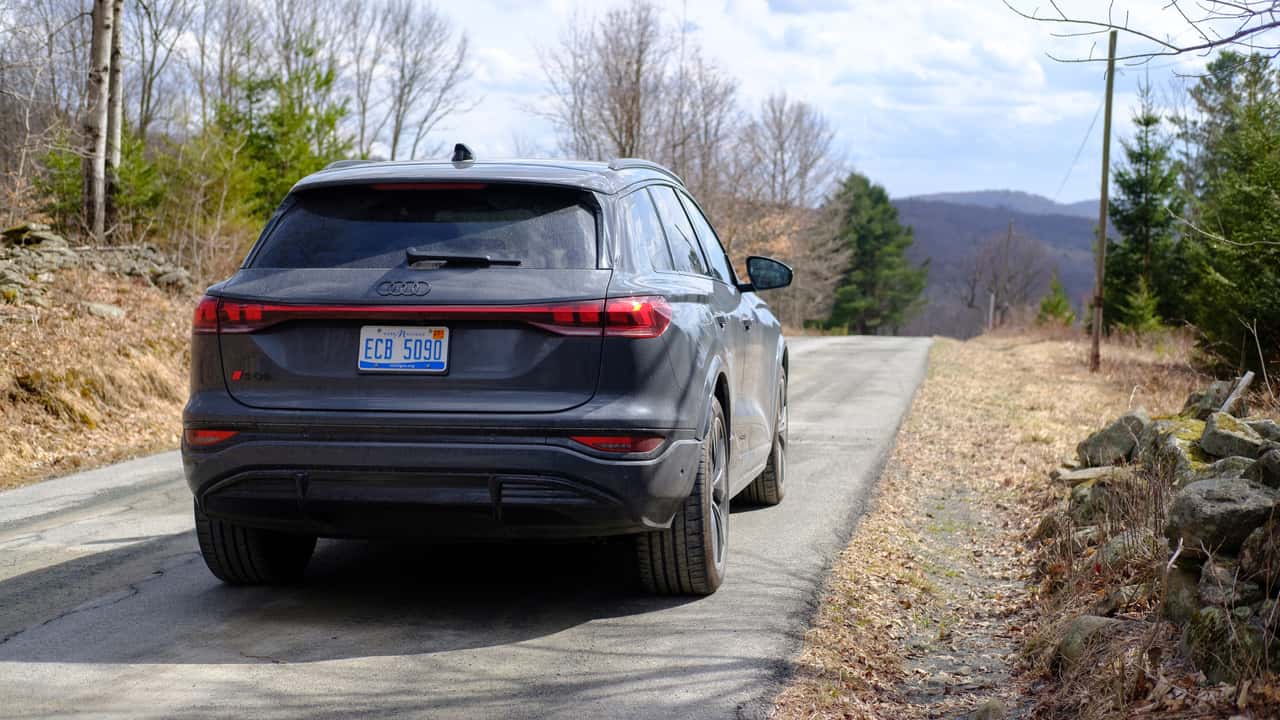Yes, Automotive Tariffs Are Still In Effect Amid 'Pause'
The tariffs come at a moment of profound change for the auto industry as it seeks to electrify and invest in new technology.

President Donald Trump hit pause on the planned reciprocal tariffs on most countries this afternoon. Unfortunately, the automotive industry wasn't so lucky.
Tariffs will remain in effect for so-called "sectoral" tariffs for the time being, Treasury Secretary Scott Bessent said at a news conference this afternoon. Those sectors include automotive imports, as well as lumber, metals, and pharmaceutical products.
For now, at least, a 25% import tax will remain on new cars, so buyers may want to either act soon or try and wait any trade negotiations in hopes prices will go down.
Meanwhile, in another retaliatory move, Trump said he would raise tariffs on Chinese goods to 125%. While very few Chinese-made cars are on sale in the U.S. already due to existing trade tensions, the move is a continued blow to imports of models like the Polestar 2.
Several automotive industry officials, who spoke to InsideEVs on condition of anonymity, intimated that Trump's decision to pause the tariffs came as a total surprise—and little clarity existed at first as to whether car tariffs would be paused as well.
Tariffs on imported cars could not only increase new vehicle prices for consumers, but could also threaten the massive investments automakers are putting into new electric vehicles, software platforms, autonomous driving and more. Many of those technological developments are even being funded by the sale of profitable gas-powered model; price instability and weakened demand for new cars could threaten those investments.
Several automakers, including Hyundai, Toyota and Honda have said that they aren't increasing new car prices—for now, at least. Others, like Volkswagen, Audi, Jaguar Land Rover and Lotus, are holding their newly imported cars at ports until they can determine any potential pricing changes.
Contact the author: patrick.george@insideevs.com
RECOMMENDED FOR YOU

The State Of New York Is Picking A Really Dumb Fight With Tesla

Volvo Goes Into Cost-Cutting Mode

Nissan's EV Sedan, Frontier PHEV Make Me Wish For A Different Reality

The Telo MT1 May Be Tiny, But It's Still Built For Hard Work

The Slate Truck Online Configurator Is Up. Build Your Perfect Cheap EV

Foxconn's Model C Is Coming To The U.S.—But It Won't Wear A Foxconn Badge

This Company Made Your iPhone. Now, It Wants To Make Your EV
